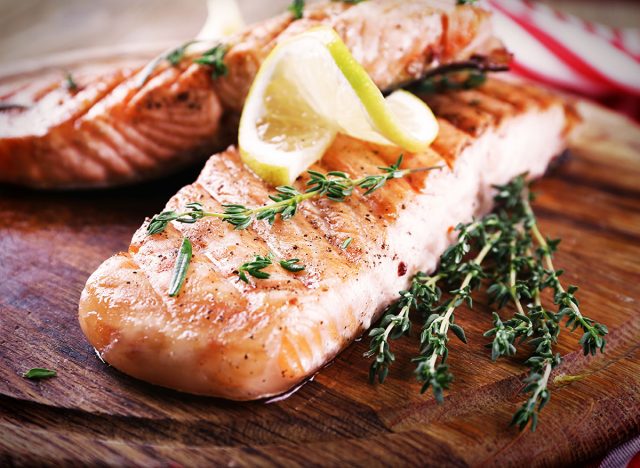The pain and frustration from having arthritis can be enough to drastically affect your day-to-day life. The stiffness and swelling that it can cause in your joints can make it difficult to do everyday tasks, as well as participate in your favorite activities. And unfortunately, the pain usually grows with age.
However, if you have arthritis, there are things you can do to help alleviate some of the pain and swelling. And one major way of reducing the inconvenience caused by arthritis is eating healthier foods.
According to Trista Best, MPH, RD, LD a registered dietitian at Balance One Supplements, the best food you can eat if you have arthritis is any food that is high in omega-3 fatty acids, which can be something like "fatty fish, walnuts, or chia seeds."
Omega-3s are anti-inflammatory

According to the Mediterranean Journal of Rheumatology, an omega-3 fatty acid-rich diet can not only help prevent certain types of arthritis, but it can also make your experience of rheumatoid arthritis less painful.
Omega-3 fatty acids are mainly known to help reduce inflammation, something that is key in living with arthritis. "An anti-inflammatory diet is an ideal diet for those living with RA," says Best, "and this is primarily due to arthritis being an inflammatory condition."
Balancing omega-3 and omega-6 fatty acids
Many people have heard of omega-3 fatty acids, but omega-6 fatty acids are less commonly known. These polyunsaturated fats, which you can find in vegetable oils, as well as most types of nuts and seeds, are pro-inflammatory when consumed in excess.
And according to Best, "when there is an imbalance between the two (omega-3 and omega-6), the body will be chronically inflamed." So finding a balance of omega-3 and 6 is key for reducing inflammation.
The takeaway
The foods that are going to be highest in omega-3s are fatty fish like salmon, mackerel, tuna, and sardines. You can also get these fatty acids through walnuts, chia seeds, soybean oil, and canola oil.
And if you're not into eating these foods, you can always talk to your doctor about taking an omega-3 supplement.
No comments:
Post a Comment